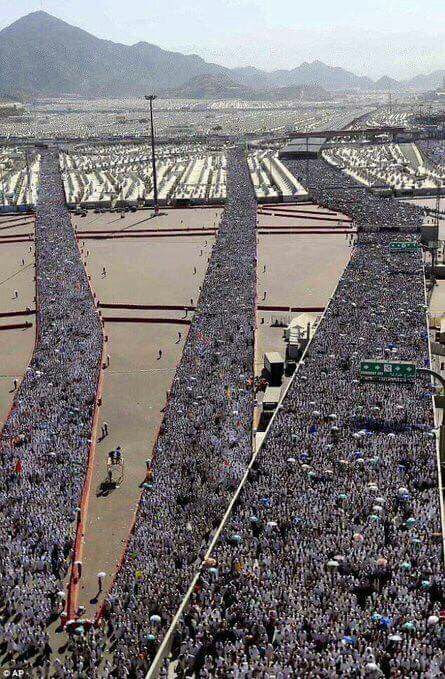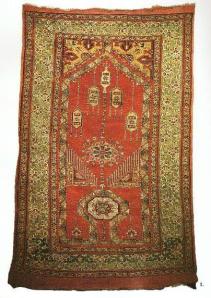By Hadrat Mawlānā Muhammad Saleem Dhorat hafizahullāh
Importance of Sunnah
Allāh ta‘ālā has commanded us to follow and emulate the life of Rasūlullāh sallallāhu ‘alayhi wasallam in the Glorious Qur’ān:
Say (O Prophet sallallāhu ‘alayhi wasallam): If you really love Allāh, then follow me, and Allāh shall love you and forgive you your sins. Allāh is Most-Forgiving, Very-Merciful. (3:31)
Similarly this has been emphasised by Rasūlullāh sallallāhu ‘alayhi wasallam in numerous ahādīth:
Hold fast to Kitābullāh and my Sunnah… (Al-Hākim)
Indeed adopting the ways of Rasūlullāh sallallāhu ‘alayhi wasallam is the key to our success in both worlds. Rasūlullāh sallallāhu ‘alayhi wasallam has stated:
Whoever loves my sunnah, loves me, and whoever loves me will be with me in Jannah. (Mishkāt)
Regarding the importance of the Sunnah, Imām Mālik rahimahullāh has commented,“The Sunnah is like the Ark of Nūh ‘alayhis salām; whoever boards it will gain salvation and whoever stays aloof from it will drown.” (Tarīkh Dimashq)
Making Sunnah an Objective
In order to emulate the beautiful way of our beloved Rasūlullāh sallallāhu ‘alayhi wasallam in every aspect of our lives, first and foremost we must make this a conscious objective. Without making this an objective, the goal will only remain on our tongues. When a person aspires to achieve something, he can only succeed when his aspiration becomes an objective, which he is passionate and determined to fulfil. Merely wishing and dreaming without any effort does not bring any progress or success.
Learn the Sunnah
After this objective becomes embedded in our hearts and minds, it is inevitable that we will want to strive to attain this. In this regard, it is essential that we first learn about the Sunnah. There are many good and authentic books from which we can learn about the ways of Rasūlullāh sallallāhu ‘alayhi wasallam. A few are listed hereunder:
- Ash-Shamāil At-Tirmidhī authored by Imām At-Tirmidhī rahimahullāh, with commentary by Shaykh-ul-Hadīth Mawlānā Muhammad Zakariyyā rahimahullāh;
- The Sublime Conduct of Nabī sallallāhu ‘alayhi wasallam, a translation of Shamāile Kubrā authored by Muftī Muhammad Irshād Qāsmī hafizahullāh.
- Uswae Rasūle Akram sallallāhu ‘alayhi wasallam, authored by Hadrat Dr. Abdul Hayy ‘Ārifī rahimahullāh.
One effective method of learning is to allocate a time of the day wherein we will learn the Sunnah. Fixing a time will ensure that we do not fall into the trap of deferring this important task. For example, allocate a time to study after supper or before going to sleep. If we can also involve our family and study the Sunnah together that will be far better, as not only will the Sunnah become a part of our lives, it will also come into the lives of our family. We do not need to allocate a lengthy period of time; if we merely aim to learn one Sunnah a day with the intention of practicing upon it, inshā’allāh, very soon we will begin to emulate the life of Rasūlullāh sallallāhu ‘alayhi wasallam. Therefore, start immediately to learn and practice one new Sunnah a day.
Bringing into Practice
After learning the Sunnah, make a concerted effort to bring this Sunnah into our lives. The following three points will assist in bringing the Sunnah into practice:
a. Increase the love for Rasūlullāh sallallāhu ‘alayhi wasallam by reading and contemplating about his features and excellences. Ponder over his efforts, sacrifices and favours upon the Ummah.
b. Associate with and sit in the company of those whose lives are in accordance with the Sunnah, as this will have a positive effect on our lives.
c. Make du‘ā to Allāh ta‘ālā to assist and grant us the ability to practice. If we are struggling to bring a particular Sunnah into practice, turn to Allāh saying that you are weak and feeble and unable to make that genuine effort needed, however, He is all powerful and He is able to change this.
By making an effort in this manner it will surely bear fruit inshā’allāh and very soon we will be able to see a transformation in our lives.
May Allāh ta‘ālā grant us all the ability to practice. Āmīn.
© Riyādul Jannah (Vol. 24 No. 9, Sep 2015)


